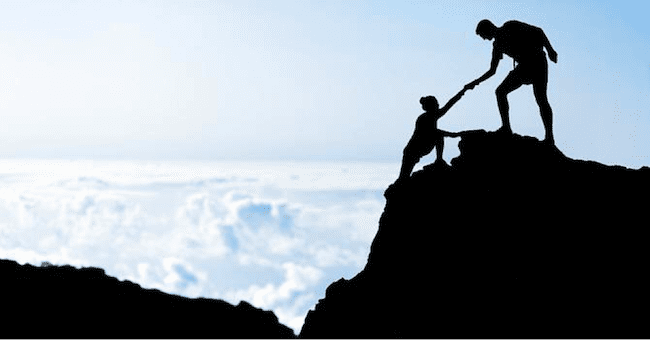One part of being a mental health advocate that I pride myself on is being a walking pamphlet of resources for people struggling with mental health and being able to help them help themselves. As a student on Binghamton University’s campus, I am well known among my friends, acquaintances, and maybe even strangers as a source of knowledge on this topic since I am an intern with the campus’s counseling center and the Vice President of the campus’s Active Minds chapter. I find great joy in being able to be the bridge for other people who may need to utilize the many resources we have on campus, in particular the counseling center, and am happy to find off campuses resources for people who need treatment that is a little more intensive.
A struggle that I face as an intern and that many mental health advocates face is knowing what our place is when it comes to helping a friend in crisis. What can I do as an advocate, since I’m not a professional? Where and when do I need to draw the line and hand over the case to someone who is trained in mental health? And maybe, even most importantly, when do I draw the line if the relationship becomes draining and maybe even toxic? These are questions every advocate should ask themselves when helping someone.
I think the most helpful quality anyone can bring to a friend who is struggling is listening without judgment. I tend to avoid using phrases like “but you don’t seem depressed” and “it could always be worse.” These kind of phrases invalidate the feelings of the person struggling and tend to make them feel worse. Using phrases that promote active listening, such as “I can sense that you’re feeling a lot of different emotions right now and I bet that’s really stressful for you” can help the friend feel supported and understood.
In some situations, this kind of support may be all your friend needs to move through the issue they are facing. Other situations may call for something more intense that a community resource could offer. Knowing resources such as local counseling centers, clinics and hotlines can be really helpful to pass along to a friend in need. In my scenario as a college student, I know what the counseling center can offer to students, along with other resources like our Dean of Students Office, general health services and other Multicultural and LGBTQ+ resources that can be found on campus. Passing along this information and even offering to accompany the friend to that said resource is a really great way to help a someone who is looking for a long term solution to whatever challenge they may be facing.
It’s important to remember that as mental health advocates, many of us are not licensed professionals. We are not doctors, we are not therapists, and we are not qualified to treat any kind of mental health condition. It’s really important to leave this work up to the people who are trained in the many different ways to administer therapy and treatment. This is for the safety of both you and your friend’s health and for the protection of the bond you have with this person. A relationship between friends and the relationship between a client and therapist are two very different things. Of the latter, a client/therapist relationship is generally one sided. If this dynamic starts to seep into a friendship, it can lead to resentment and extra issues for all parties involved.
I can’t speak for everyone, but I can speak for myself when I say that the hardest thing for me to recognize and deal with is knowing your friend is still struggling, but there is nothing else you can do. If you’ve helped a friend this far along, you most likely have the natural drive to help people because you are empathetic, loving, and selfless, especially when the person you are helping is someone you genuinely care for. When you’ve done everything you can, it’s important to love yourself enough to walk away at the end of the day if you begin to feel drained and emotionally exhausted from the relationship. In the same way that a paramedic must put himself before his client in an EMT situation, you need to put your feelings and mental health first. This is primarily because it is really difficult to care for someone else who is dealing with mental health struggles if you too begin to struggle. Walking away to protect yourself is not abandonment. Walking away to protect yourself is not giving up. Walking away to protect yourself is done simply to protect yourself. Mental health struggles can become very sensitive and heavy, and topics such as these require boundaries and respect for all parties involved. With that said, I repeat the most valuable piece of advice I’ve learned in my long time as a mental health advocate and short time as a mental health intern: You can love them, but you have to love you more. You did not fail them. You’ve done all you can. There is no shame in putting yourself first and it is okay to walk away if you need to. You’ve planted the seed for them to grow.
Read more from Lauryn at her personal blog, or see the rest of her posts for IBPF here.
The content of the International Bipolar Foundation blogs is for informational purposes only. The content is not intended to be a substitute for professional medical advice, diagnosis, or treatment. Always seek the advice of your physician and never disregard professional medical advice because of something you have read in any IBPF content.


